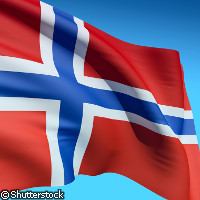Norway and the EU see eye to eye on ERA's 2020 vision
The EU and Norway must redouble efforts to overcome remaining hurdles to achieving the European Research Area's (ERA) vision for the next decade of more mobility for researchers, knowledge and technology, according to a news report by the Research Council of Norway. Speaking at the recent Norwegian ERA Forum, high-ranking officials from both European Commission and Norway's Research Council underlined the importance of Europe's so-called 'fifth freedom', promoting more collaboration and mobility for researchers across ERA. 'To reach the goal of free movement of researchers and knowledge in Europe by 2020, the development of ERA clearly has to be speeded up compared with what we have seen so far,' Anneli Pauli, deputy director-general of the European Commission's Directorate-General for Research, was quoted as saying. She went on to praise Norway's commitment and approach to ERA, particularly as a non-member state. Arvid Hallén, director-general of the Research Council echoed this view, suggesting that Norway does not want to be left behind in research. 'We don't want to be left standing on the platform when the train pulls out of the station. [Norway's] new strategy for international cooperation will enable us to take a more proactive approach,' he noted on the Council's website. In what the Scandinavian country calls 'the internationalisation of [its] research and research policy', greater involvement in ERA is also seen as a key weapon in addressing some of the more pressing challenges - the environment, sustainable energy, food security and safety, etc. - facing the scientific community and society today. ERA has a major influence on different areas of the Research Council's work, according the news report published after the Forum, from programming and funding to helping set priorities for national infrastructure projects in Norway. Indeed, major research infrastructure projects can be too costly and complex for one country to set up and manage alone, and '...being such a small country, Norway has to collaborate with others on research,' noted Kyrre Lekve, State-Secretary for the Ministry of Education and Research. 'We have to motivate our researchers to work for periods at foreign institutions and to bring international experience and perspectives back home to Norway," he added. This is where ERA comes in. It provides attractive conditions and effective and efficient governance for doing research and investing in research and development-intensive sectors in Europe. It creates strong added-value by fostering healthy, Europe-wide scientific competition while ensuring the appropriate level of cooperation and coordination. The European Commission has established several initiatives to help ERA reach its 2020 vision. These are part of the Ljubljana Process for better governance of ERA launched by the European Commission and the Council on May 2008. Norway participates in many of these joint activities, including European research infrastructure programmes, schemes to increase researcher mobility (careers and mobility), large-scale European joint programmes and international research cooperation schemes. The Research Council of Norway and the country's Ministry of Education and Research organise the annual Norwegian ERA Forum to keep stakeholders and decision makers abreast of goings on and opportunities in the European Research Area.
Countries
Norway



